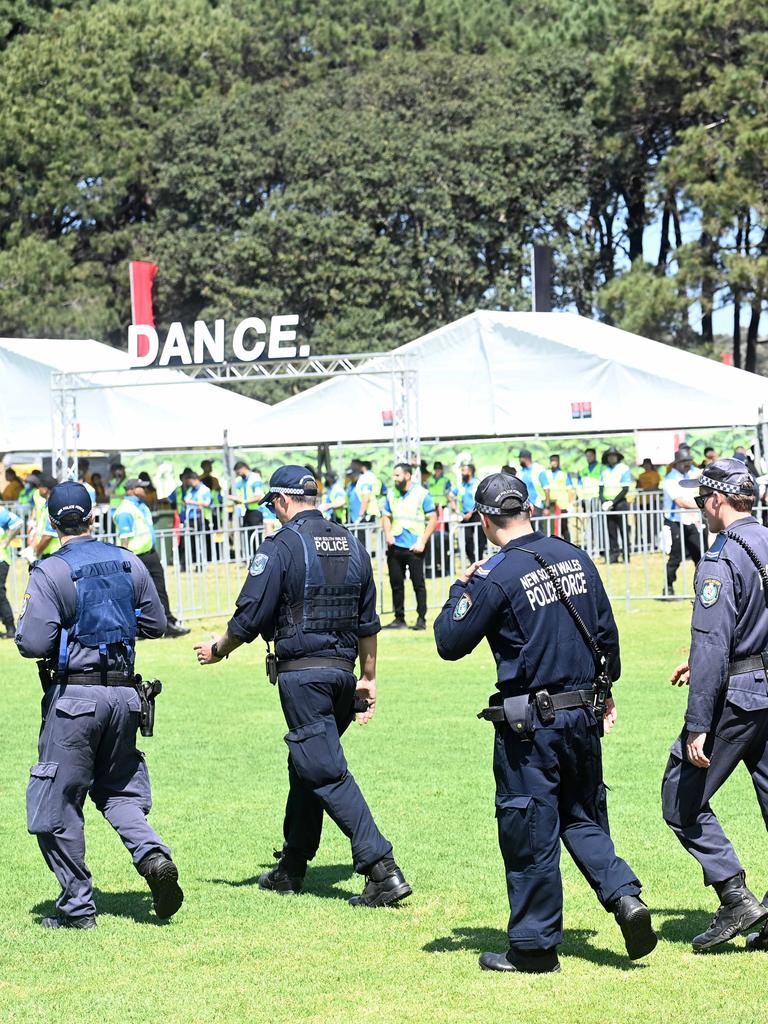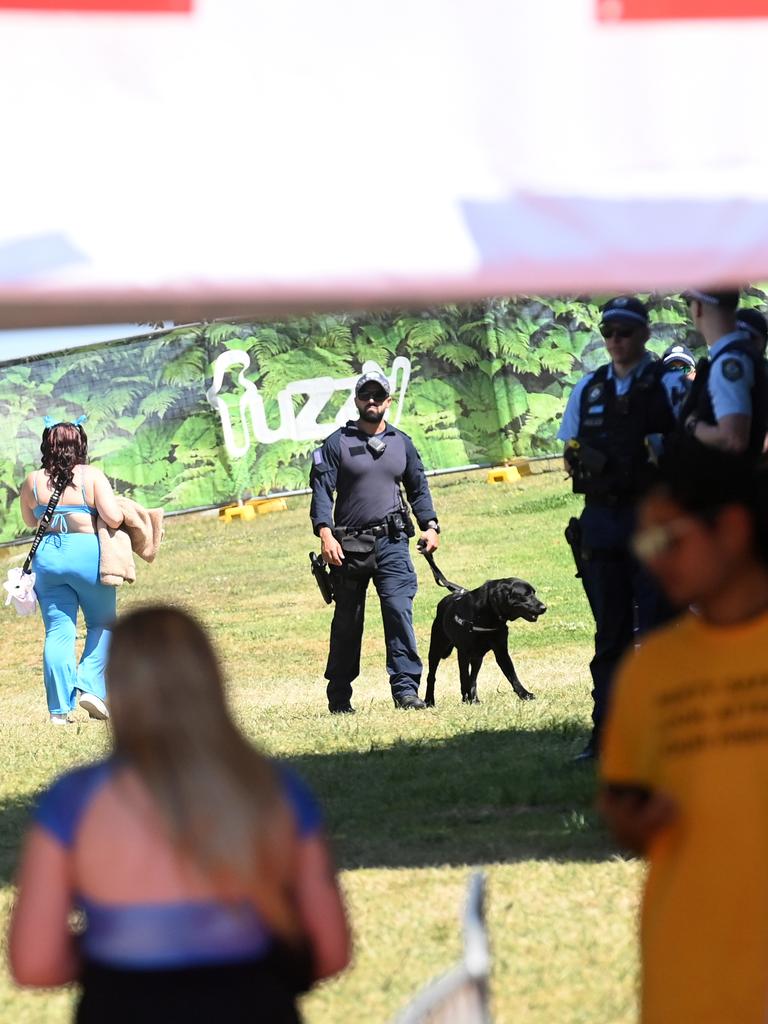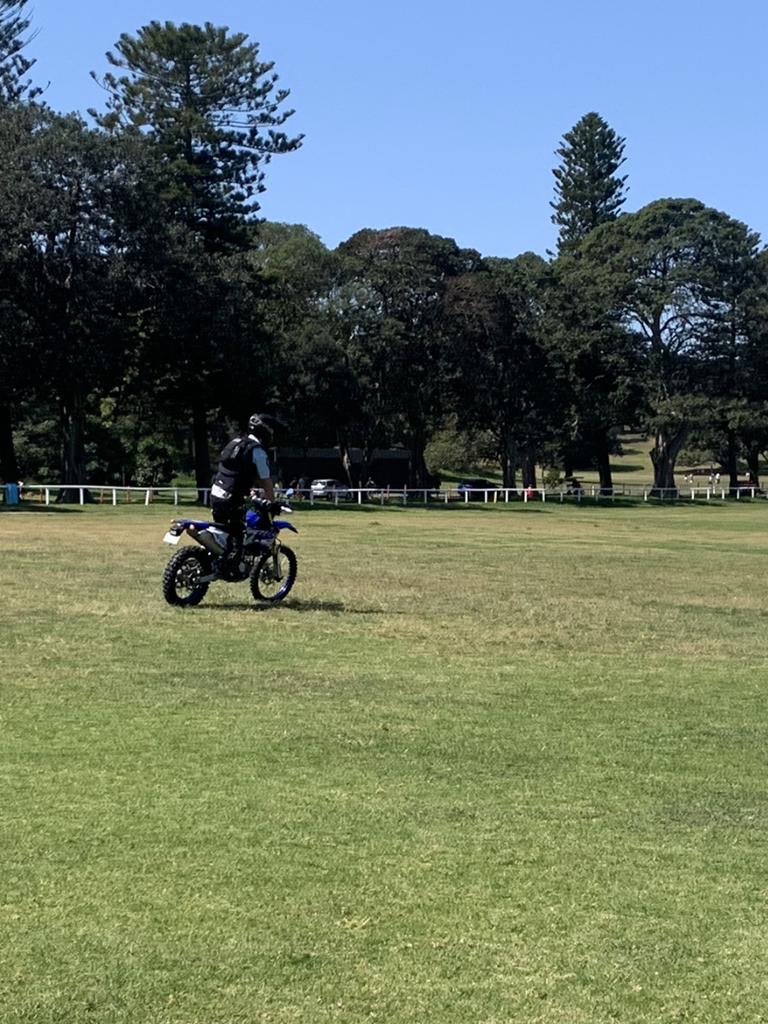Fresh calls to bring in pill testing have been echoed by NSW festivalgoers
As tens of thousands braved the heat at Sydney’s Listen Out over the weekend - there was one common trend being echoed by festivalgoers.
Festivalgoers are urging for pill testing to be brought in at Aussie music festivals.
Both Knockout Outdoor and Listen Out festival kicked off festival season yesterday in Sydney.
Two men in their 20s died yesterday after attending Knockout Outdoor in Sydney’s Olympic Park, however the cause of death is not yet known.
Sniffer dogs and strip searching tents were set up at Listen Out in Sydney’s Centennial Park yesterday with police in full force.
Talking to some of the eager festivalgoers at the event, there was one common trend being echoed: pill testing should be brought in at NSW music festivals.
Melissa and Nick, 18 and 19-year-old Listen Out attendees, offered their support for the idea as they walked towards the festival gates.
“It’s a great idea, especially for a massive crowd like this, you can test if it’s safe or not,” Nick told news.com.au.
Melissa added that it’s a good idea because drugs are so common with young people, especially at festivals similar to Listen Out.
“I feel like having somewhere where you can go so you at least you feel somewhat safe in the stuff you’re taking, because there’s a lot of strangers and a lot of things that could go wrong,” she said.


Other Listen Out patrons mirrored the same idea:
“I think regardless, people are gonna still take something and if they are they should have the right to test it and see if it’s okay,” 25-year-old Kevin said.
“It’s such a good idea…I believe, even though it is illegal, not blaming people for that, and it’s just to ensure people’s safety and I think that is so good,” said Lily, 20.
Gino Vumbaca, President of Harm Reduction Australia and Pill Testing Australia, said that he’s been offering a free pill testing trial for a NSW festival of the government’s choice for years.
“We can’t make it any easier than that to trial it,” he told news.com.au.
Speaking to those with concerns that pill testing is a way of saying “it’s okay to use drugs”, Vumabca explained what really happens at pill testing sites, such as those in the ACT.
“What we do is, people who are already in the festival with drugs and about to consume it, we say ‘Just pause, come and talk to us, at least find out what it is you’re about to put inside your body and find out what the effects of that may be,’” he said.
He added that on the occasions where dangerous substances have been found in drugs, people have been throwing the drugs in an amnesty bin rather than consuming them.
“So if there’s anything toxic, floating around and quite dangerous, we’ll be able to identify it and people won’t take it.
“I mean, that’s our experience, is that if you say to someone, ‘If you take this, you’re going to experience a lot of problems’, they generally don’t take it because that’s not what they’re there to do.”

A pilot report from Pill Testing Australia found that there’s a significant disconnect between what patrons expect they’ll be consuming, versus what the drug is comprised of.
The 2018 report found that “patron’s knowledge of what they are taking is often not well-founded”, with only 43 per cent of patrons accurately guessing what was in the drug they planned on taking.
Cate Faehrmann, the Greens spokesperson for Drug Law Reform and Harm Reduction, expressed concern heading into a hot festival season.
“I feel like there’ll be, unfortunately, more deaths before there is action, because the government just doesn’t seem to think it’s a priority,” she told news.com.au.
“For as long as governments continue to have their heads in the sand about it, the people who need help won’t be able to seek help or will be afraid of seeking help,” she added.
Faehrmann will introduce a bill to Parliament this month for a NSW pill testing pilot.
“We’re very keen to see if we can have it debated in the parliament before the end of the year, because wouldn’t it be amazing if we could have implementation pilot at which the bill does allow [pill testing] at three festivals and one fixed site place in the community?” she said.
She added that a pilot would be great to take to the government’s drug summit, of which there is still no date.
Last month, 20 drug safety advocates petitioned NSW Premier Chris Minns to trial drug-checking services.


Despite several calls for pill testing, a NSW spokesperson maintained that pill testing doesn’t guarantee that overdoses won’t occur.
“We are encouraged by how well NSW Health has been working with music festival organisers to develop comprehensive harm reduction plans to ensure safe medical care is available for festival goers over summer.
“There is no such thing as a safe illicit drug.
“Pill testing does not indicate it is safe to consume and does not guarantee there will not be an overdose.
“We encourage festival goers to party safely as the festival season kicks off this weekend.
“The NSW Government’s drug summit will bring together addiction, health and other experts in developing a whole of community, evidence-based approach to achieving positive health outcomes.”
The calls come after a coronial inquest into the deaths of six NSW festival-goers between 2017-2019.
The six people, Alex Ross-King, 19, Joshua Tam, 22, Callum Brosnan, 21, Diana Nguyen, 21, Joseph Pham, 23, and Nathan Tran, 18, all died during or just after attending festivals across NSW.
The festivals included Knockout Circuz and Knockout Games of Destiny.
The inquest recommended that medically supervised drug testing take place at NSW music festivals.
The inquest also recommended decriminalising personal use of drugs and removing sniffer dogs.
The single message of “just say no [to drugs]” was also reported to be dangerous in the inquest.
“While it may be a starting point for young children, it has little or no effect on those who seriously contemplate drug use or who have already had a drug event that they have experienced as positive,” the report read.
“What is needed is more nuanced messaging that provides accurate information about risk. We need to talk more openly about how to provide correct and credible information about drugs to young people.”





